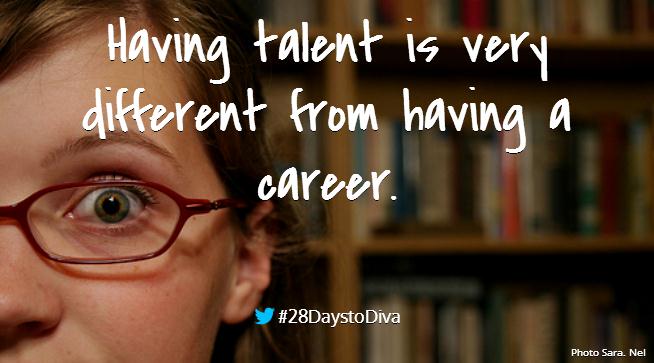Conservatories and music schools across the United States are, almost entirely unwittingly, amazing small business incubators. They are similar to more recognizable small business incubators, like technology and e-commerce, because they only serve select clients which are the musicians that are accepted into their field of study. What these academic institutions are beginning to realize (some have known far longer than others) is that musicians need more than excellent musical training. They need the resources that the institution provides in a more transparent, direct, and effective way. Musicians need business skills training, marketing assistance, networking assistance and connections to strategic partners in addition to repertoire suggestions and help with technique. The heart of a good business incubator is to provide services to startups that need them most. Although most of you have been in business for years (anybody got a stack of 1099 forms filling up their mailbox right now?), take a moment to think of yourself as a business startup.
Your Day 3 challenge is to Solidify Your Legal Structure.
Ah yes, you thought the diva life was all sex, drugs, and breath control… If you are serious about a career in singing or are starting to notice more of those 1099s piling up, then you really need to consider your business structure and how to maintain it. Most singers I know are living the freelance life and do not have a need to form a corporate structure. Therefore, a sole proprietorship model is most appealing. The U.S. Small Business Administration rules, “a sole proprietorship is the simplest and most common structure chosen to start a business. It is an unincorporated business owned and run by one individual with no distinction between the business and you, the owner. You are entitled to all profits and are responsible for all your business’s debts, losses and liabilities.” If you are already freelancing, you are already a sole proprietor of a business. However, to make it legal you will want to obtain the necessary licenses and permits. The SBA has a wonderful tool where you can enter your zip code and it will direct you to a page with more licensing information specific to your region.
The advantages to running your singing and/or teaching business as a sole proprietorship are pretty straightforward: the business is easy to form, you get to maintain complete control over your business, and the tax filing is the easiest of all business types because your business is not taxed separately from your individual taxes. As always, there are some disadvantages to becoming a sole proprietor. There is a disadvantage in being the “sole” of the sole proprietor because there is no legal separation between you and your business. All of the risks and liabilities rest squarely on your shoulders. Finally, it is quite difficult to raise funds or get business loans if you run a sole proprietorship. This does not mean that you cannot raise money in other ways, but you will need to think about the taxes on your business income. Gosh, this is just oozing sex appeal isn’t it…
If you are running a private studio with its own name or perhaps you changed your name when you married but want to keep your business name under your maiden name. Julia Gulia anyone? It is time to think about “Doing Business As” or DBA. If you have a partnership or a sole proprietorship and you choose anything but your legal name for your business, you will need to register your business. You can register your business name either with your county clerk or with the state government, depending on where you live.
But wait, there’s more!
Are you running a freelance ensemble? Would you like to have more than one owner responsible for the business of your group? Even barely entertaining the idea of wanting to raise capital? You may want to consider the L3C. “Created in 2008 to bridge the gap between non-profit and for-profit investing by providing a structure that facilitates investments in socially beneficial, for-profit ventures,” states the National Business Incubation Association. Although this and the benefit corporation are not available in every state, it is an interesting concept for the rising tide of entrepreneurial chamber groups in the States. While the profit potential for chamber ensembles is traditionally a low threshold, these types of legal structures actually allow some room for private foundation investors. Take that to your next family dinner…
Having talent is very different from having a career. Solidifying your business/legal structure is a definitive way for you to claim your passion as your business. It is not a hobby. It is your livelihood in addition to the thing that brings you to life.  I am incredibly indebted to the extraordinary people of Fifth House Ensemble and the Fresh Inc Festival for bringing me to the research outlined in this post. They are outstanding musicians/composers and they make music entrepreneurism look damn good. If you are looking for a summer festival that acts like an arts business incubator, look no further. You will continue to see their influence throughout this year’s 28 Days to Diva.
I am incredibly indebted to the extraordinary people of Fifth House Ensemble and the Fresh Inc Festival for bringing me to the research outlined in this post. They are outstanding musicians/composers and they make music entrepreneurism look damn good. If you are looking for a summer festival that acts like an arts business incubator, look no further. You will continue to see their influence throughout this year’s 28 Days to Diva.
Feeling inspired to rev the engine on your music business? Share with me your stories or experiences in setting up your legal structure in the comments below. If you are the sharing-is-caring type, please feel free to share this post on your favorite social media sites. It makes me, @mezzoihnen, do a little happy dance — and I’ve got a mean lawnmower move.



Hey Megan, great post. I had not thought at all about making my sole proprietorship legal. Would you say this is a necessary step for singers freelancing pretty much full-time but making most of their income tax-exempt? Another question: How does it work when the business (ie, you) relocates? It’d be great to read up further if you had resources to share!
— Danielle
Hi Danielle,
Great questions. I would say the necessity is based on how necessary you think it is. I highly recommend it if you want to have your business name separate from your legal name. Also, there might be more tax resources available to you.
Sole proprietorships are set up through the state in which you are living and you will need to register again if you move to a different location. If you are moving anytime soon, you may want to wait so that you are not having to pay fees etc twice.
I would be interested to see if you find any special information regarding visas etc when setting up a sole proprietorship.
Here is the link the to the Maryland State dept of assets and taxation :http://www.dat.state.md.us/sdatweb/soleprop.html
Also, How to Register a Maryland Business – http://choosemaryland.org/startbusiness/Pages/statetaxregistration.aspx
Hope that helps! Let’s talk more!
-M